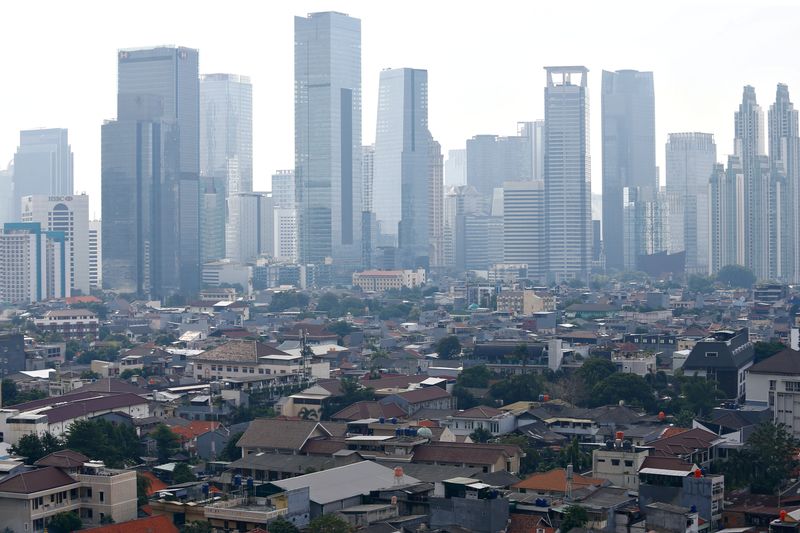By David Lawder and Valerie Volcovici
NUSA DUA, Indonesia/SHARM EL-SHEIKH, Egypt (Reuters) - A coalition of countries will mobilise $20 billion of public and private finance to help Indonesia shut coal power plants and bring forward the sector's peak emissions date by seven years to 2030, the United States, Japan and partners said on Tuesday.
The Indonesia Just Energy Transition Partnership (JETP), more than a year in the making, "is probably the single largest climate finance transaction or partnership ever", a U.S. Treasury official told reporters.
The Indonesia JETP is based on last year's $8.5 billion initiative to help South Africa more quickly decarbonise its power sector that was launched at the COP26 climate summit in Glasgow by the United States, Britain and European Union.
To access the programme's $20 billion worth of grants and concessional loans over a three- to five-year period, Indonesia has committed to capping power sector emissions at 290 million tonnes by 2030, with a peak that year. The public and private sectors have pledged about half of the funds each.
Indonesia has also set a goal to reach net-zero emissions in its power sector by 2050, a decade before its current target in its national climate plan, and to double the pace of renewable energy deployment so that it accounts for at least 34% of all power generation by 2030.
"We've built a platform for cooperation that can truly transform Indonesia's power sector from coal to renewables and support significant economic growth," U.S. Special Envoy on Climate Change John Kerry said.
EARLIER PEAK
The Treasury official said peak power emissions for Indonesia in 2030 under the plan would be at a level 25% lower than their currently estimated peak in 2037. Indonesia's annual emissions reduction over those years would be larger than Britain's annual power sector emissions, the official said.
The plan will eliminate 300 million tonnes of greenhouse gas emissions through 2030 and a reduction of well over 2 billion tonnes through 2060, the partners said in their statement.
"Indonesia is committed to using our energy transition toachieve a green economy and drive sustainable development," President Joko Widodo said in a statement. "This partnership will generate valuable lessons for the global community."
U.S., JAPAN LEAD
The United States and Japan are co-leading the effort with Indonesia on behalf of the other G7 democracies Britain, Canada, France, Germany, Italy, as well as partners Norway, Denmark and the European Union.
Multilateral development banks and the Climate Investment Funds will account for about a third of the $10 billion in public funding for Indonesia's JETP, CIF head Mafalda Duarte told reporters. CIF has allocated about $500 million to aid Indonesia's energy transition.
"There is a recognition that this is the first move, a first package of support, and that more will be needed," Duarte said when asked about the adequacy of the JETP funding.
On Monday, Japan announced it would help Indonesia transition away from coal power through public and private institutions, including the state-affiliated Japan Bank for International Cooperation (JBIC).
Indonesia, the Asian Development Bank (ADB) and a private power producer on Monday announced plans to refinance and prematurely retire a 660-megawatt coal-fired power plant in West Java province, the first such deal under the ADB's new carbon emissions reduction financing programme.
U.S. Treasury and State Department officials said half of the $20 billion would come from the private sector, with seven global banks participating: Bank of America (NYSE:BAC) Citigroup (NYSE:C) Deutsche Bank (ETR:DBKGn), HSBC, Standard Chartered (OTC:SCBFF), Macquarie and MUFG.
The U.S. officials said public finance would include concessional lending and equity, as well as some grants.
The United States will work with Indonesia to map out a 90-day plan to set up a secretariat to run the initiative and for Indonesia to reform its policies, such as streamlining permitting and setting up a competitive procurement process to make the targets achievable.
South Africa this month said the scale of funding it requires to phase out its coal was much higher than the funding mobilized through its JETP mechanism.
The State Department official said it had learned some lessons and had engaged local partners from the outset to "move as fast as possible".
